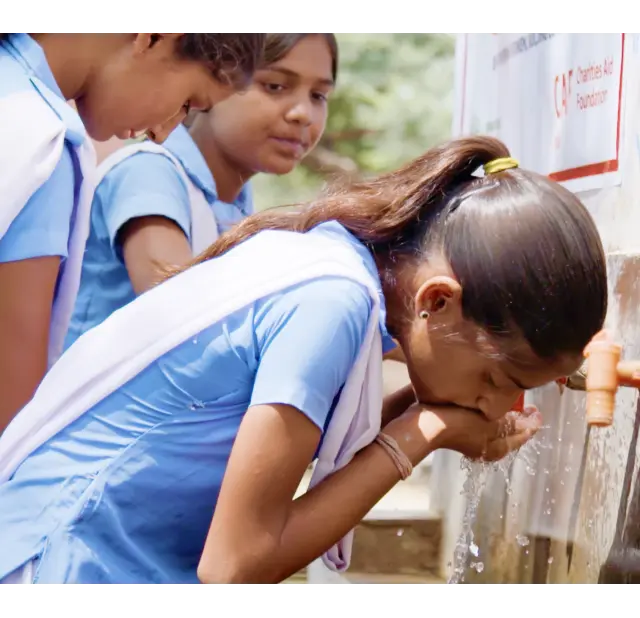Climate impacts are first and foremost felt through water, whether this is too much or too little. And currently more than half of the world’s population now live under highly water-stressed conditions for at least one month a year. Less discussed is the fact there’s also a gender crisis of water; not just a climate one.
We see that a lack of clean water and access to decent toilets disproportionately impacts women and girls. This means they are also more vulnerable to the impacts of climate change. Collectively, women and girls spend over 200million hours collecting water every day, hours they could spend getting an education and working to increase their economic resilience against climate shocks.
We want to change this. We want to invest in water so we can unlock the potential of many impoverished communities and in particular address the gender inequalities in communities around the world that don’t have easy access to water. We want women to feel empowered, get an education, gain their independence and have a voice within their communities. When women have a voice, their needs are met, and their lives can be changed for the better.
So how are we doing this?
We jointly funded with WaterAid and Coca Cola ‘Gender Guidance for WASH’ to provide businesses and NGOs with support and knowledge to ensure women have equal access to, and agency over, the provisions of water sanitation and hygiene in their projects. On average every year, we deliver 20 WASH projects in 9 countries in the communities in which we work or source raw materials. This allows the community to have clean, accessible water in their village which also builds their climate resilience.
Last year, in partnership with Care International we piloted an approach in Kenya to have half of the WASH committee in the village as female. The project was a success within the community and we’re now rolling the gender approach out across all our WASH projects. Last year, 10 of our 17 WASH projects implemented the gender guidance.
From now on, in every community we do a WASH project, we aim to set up a committee to tap into their local knowledge on the best place for the new water points, to ensure their upkeep and address any issues along the way. We’re aiming to improve these committees in a sensitive way to give women a voice so their needs are met, whilst including men and boys in the process, and addressing cultural and social norms so women have equal access.
We hope that by doing this, we empower women and men across the village to embrace equal rights across genders to resources, education and employment. And by investing in water and WASH projects, it can establish gender equality and build resilience to climate change.
